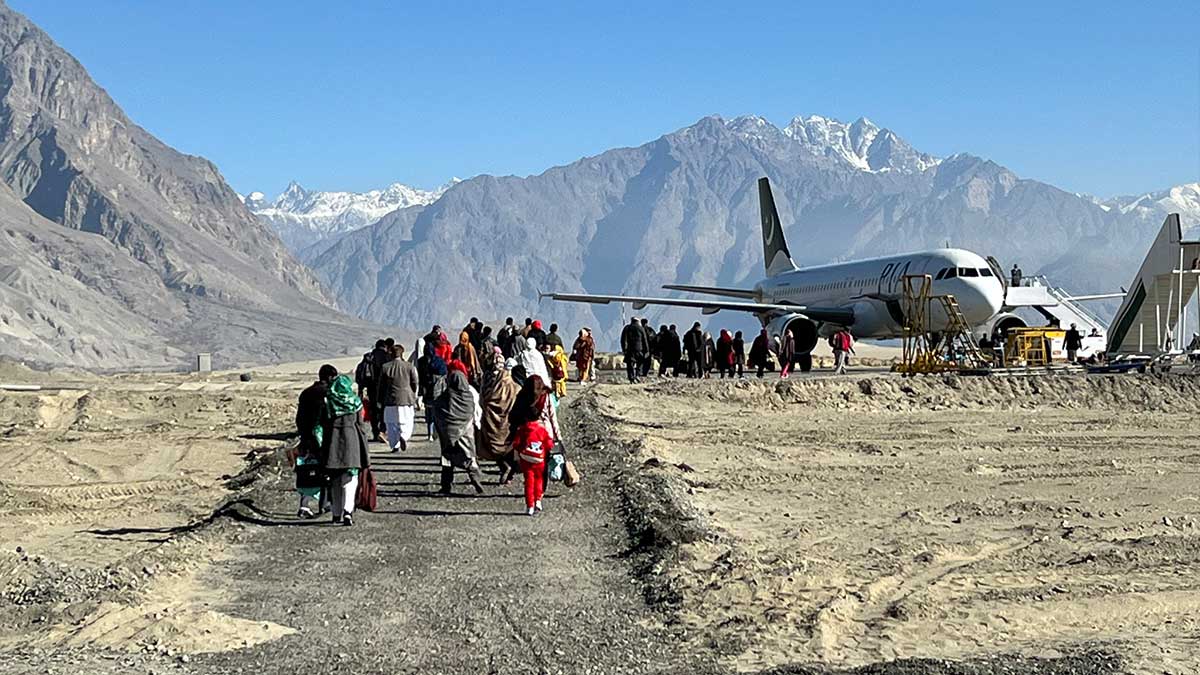The Skardu International Airport and Jaglot-Skardu road have been inaugurated by Prime Minister Imran Khan during his visit to the region.
Previously, the airport in Skardu was only operative for national flights. Nevertheless, its grade was raised on December 2 as it activated receiving international flights as well.
Speaking to a great crowd at Municipal Stadium Skardu, the prime minister indicated the facility’s promotion to an international airport would carry inexpressible variations for the locals.
The premier further said that Gilgit Baltistan had the “most beautiful mountain scenery in the world” however moaned that people were unaware about it as travel was difficult.
Read more: Flydubai to start direct tourist flights to Skardu
He showed confidence that travelers, comprising foreign Pakistanis and local tourists, would reach in large numbers when the up-gradation of the airport as well as the road, will be completed.
He said the improved road connectivity and Skardu International Airport to turn Gilgit Baltistan into a top destination for local and foreign tourists, ensuring prosperity in the region.
“Tourism can become a big asset of Pakistan,” he maintained, saying that if Switzerland could make $70 billion from the tourism sector then Pakistan too could generate generous revenue from tourism all year long. “We can make at least $30-$40 billion from tourism just in GB,” he said.
Moreover, the prime minister also underlined spiritual tourism and the potential of unused coastal belts. “We have not taken benefit of the blessings that God has granted us,” he said.
He said the residents would be benefitted at the supreme from the outpouring in tourism as they would no longer have to venture to remote areas to seek jobs. In its place, people would come to their zone to find jobs, he said.
While elucidating his dream, the prime minister said that no country can really develop till it raises its poor and recovers its backward and ignored areas.
“It is my [desire] that by the time our five years are complete, the life in backward areas is better and the lives of people below the poverty line are improved.”





















